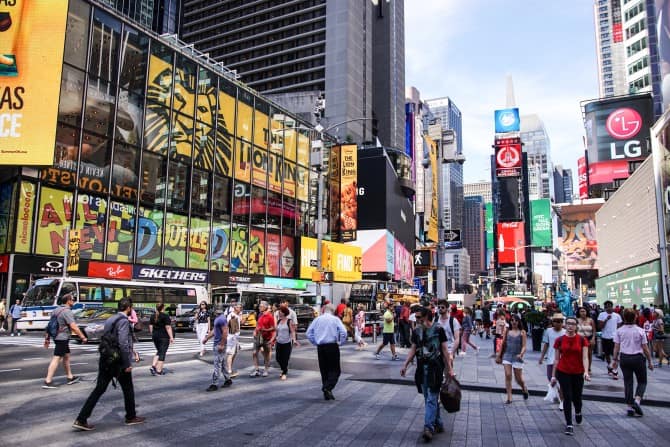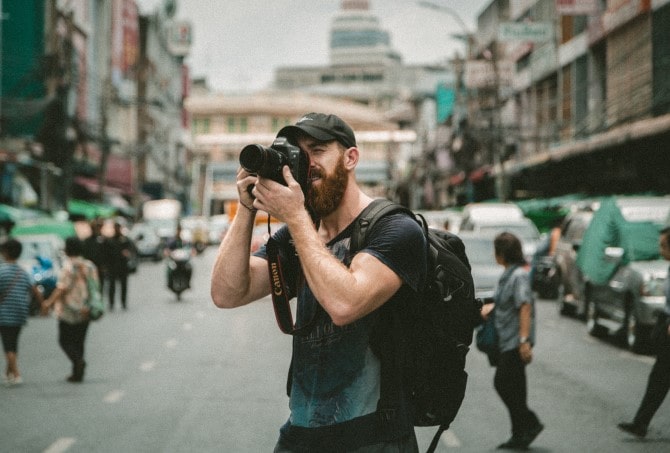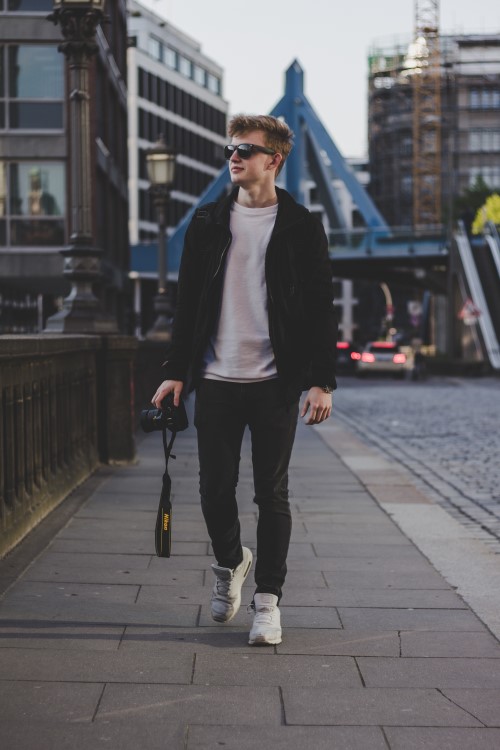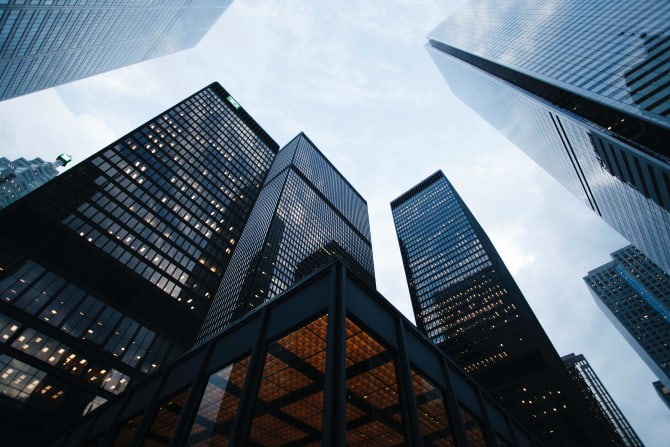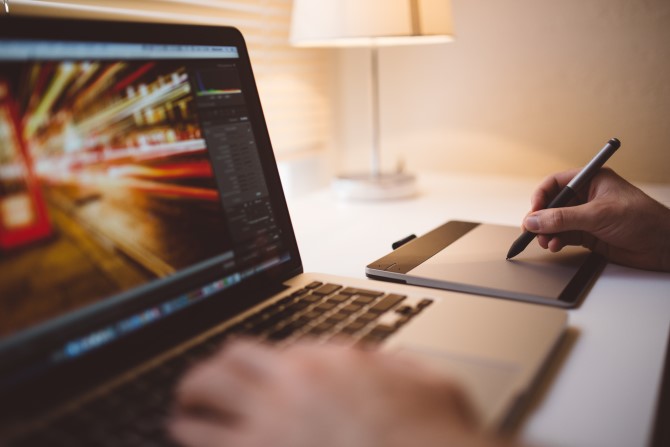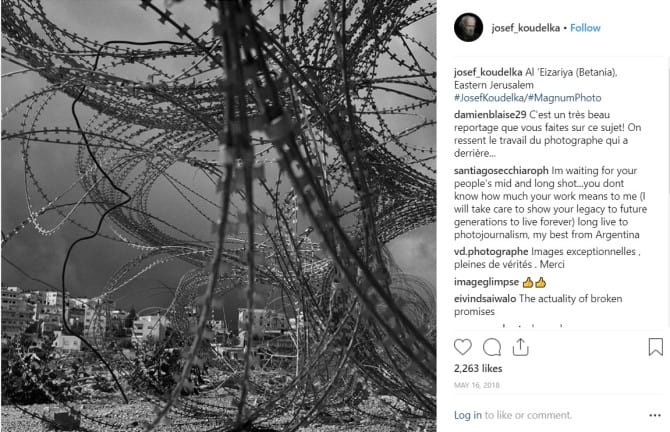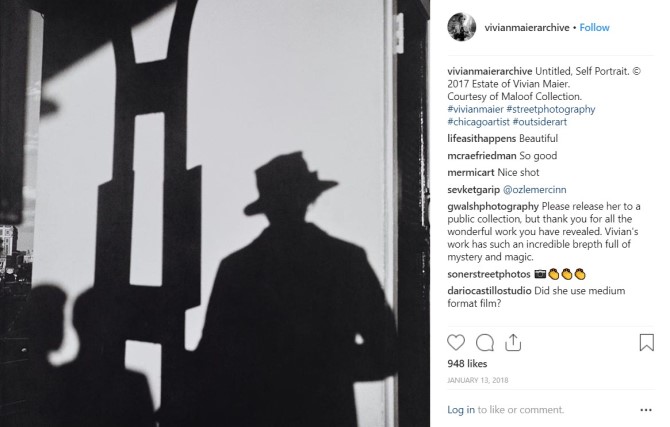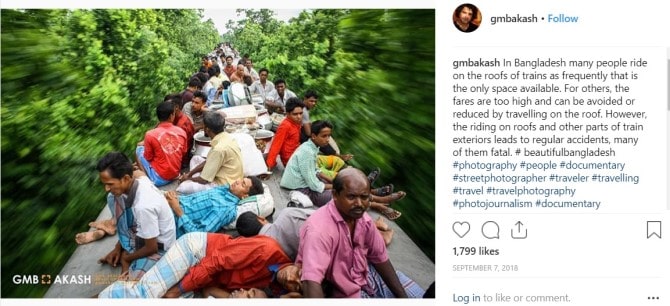Street photography doesn’t just require skill and experience, it requires buckets of creativity and strong instincts. It’s not always easy to create great street photography on-the-fly; you need to develop a sense of intuition over time about what will work well, and what won’t.
Street photography is different from all other forms, because it requires far less pre-planning. Often, you’ll leave the house with no idea what you’ll be shooting that day, so for those of us who aren’t that spontaneous, street photography might prove to be a challenge at first.
To top it off, unlike portrait photography, landscape photography or other posed photos, with street photography you’re often dealing with more unpredictable light; shadows in cities, the light at different times of day, and people who may be unwilling to have their photo taken.
But it’s the unpredictable nature of this kind of photography that makes it interesting. Street photography can produce some of the most compelling, beautiful photos; it’s raw, it’s real, and the overall effect is artistic and intriguing. Great street photos can become works of art, showing us every day, mundane scenes in a new light, in a way which depicts beauty, stark reality, and everything in between.
Street photography basics
Mastering street photography is about practice. It takes time to become a great street photographer. Once you are, you’ll intuitively start to know exactly which kinds of shots will and won’t work, as well as how to work your angles, the light, and interesting shapes to your advantage when you’re on-the-go.
Creating great street photos requires time to develop the right attitude and the confidence to take shots of people you don’t know. After all, people can be the most interesting part of street photography, particularly in the cities. But unfortunately, not all of them will want you to take their photo! You could be dealing with people who are shy, rude or downright aggressive towards you. A great street photographer takes all this in their stride and has their wits about them at all times.
So first of all, accept that by doing street photography, you’re going to be invading other people’s privacy. If you’re just starting out, a handy trick is to bring a friend along with you. Pretend to take a photo of your friend in a crowd, against a wall, or in front of an interesting subject. Then, shift the focus away from your friend to your intended target and shoot away.
Choose an area packed with tourists or popular landmarks when you’re just starting out. That way, you won’t look so out of place, and most people will think you’re just another tourist.
Another tip is that after you have taken a shot of someone, don’t immediately take your eye away from the lens. This more than anything will alert your subject to the fact that you’ve taken their picture. Instead, keep your eye to the lens and continue taking photos while scanning the scene.
Getting equipped
You’ll want to test a variety of lenses to see what works for you. Having a large lens can often prove awkward because street photography requires so much movement. The less equipment you have, the better. Not to mention, you look quite conspicuous when you are carrying an enormous lens!
Many street photographers use a wide-angle lens and a lightweight camera that is easy to carry and looks less obvious when shooting. You probably also want to use a quiet shutter if you want to be a little more discreet.
Setting the scene
Many street photos are typically black and white. Street portraits, in particular, look great in black and white. Why black and white? Well, not only do black and white photos create an interesting stylistic look, they can shift your focus from the colour of the photograph to the shapes and shadowing in the photograph. This can enhance silhouettes or shadow in the image.
Or perhaps the colour in your photo is too intense and distracts from the other elements in the shot, like lines and other small details. In this case, you might want to edit your images in black and white.
But don’t feel like you need to shoot in black and white, or even edit your images this way. There are a lot of famous street photographers, particularly more recently, who use colour in spectacular ways to bring their street photography to life.
Street photography tricks
The first rule of street photography is learning to shoot from the hip. This is a useful trick, especially if you don’t want the awkwardness of putting the camera to your eye level and taking direct shots of people on the street. Shooting from the hip can be an absolute failure when you’re just starting out. But, once mastered, it can be a very useful way of capturing interesting shots that you wouldn’t normally be able to capture by putting the camera to your eye. Turn your camera on the auto shutter to make the most of this technique.
The images captured using this technique will often have a much more natural look than a posed photograph.
Another tip is to shoot head-on, from a very low angle. This will make your subject look much more powerful, and cuts out any busyness in the surrounding area, leaving a clean space of sky in the background, which makes your subject stand out more.
Creativity is a key element in street photography, and experimentation is crucial in achieving interesting shots. It may take a while to get your street photography style right.
Think about what makes an interesting street photo. It doesn’t always have to be a portrait. It might be interesting juxtapositions of buildings or objects or a whole crowd of people in a particular space.
Buildings and objects can be just as interesting as people. For instance, you could shoot a discarded teddy bear at the door of a derelict city townhouse or documents shoved in a bin. Your audience will see meaning in what the object stands for.
City buildings can also make interesting photographs; their sharply-defines structures and shadowing often create interesting subject matter.
Practice looking for interesting ideas in what you see around you; contrasts that you find interesting, interesting design aspects, or surprising scenes.
Editing street photos
When editing, you’ll want to assess whether you want your image to be black and white, or colour. Try it in both and compare. Editing is (arguably) less important in street photography than in, say, landscape photography.
Rather, it’s far more important that you’ve captured an interesting scene which tells a story than it is to have a perfect-quality image. That said, when editing, you may want to play with sharpness, shadows, or other aspects of your image to try to create that gritty drama so often seen in street photography.
Famous street photographers
Street photography has been popular since the 1900s, and despite the fact that any photography captures a certain moment in time, it also speaks a universal language about human truths and scenes of city life that remain timeless.
There are many famous street photographers, but here are some of the best:
Josef Koudelka
Joseph is a famous Czech-French photographer. His dramatic images of the Soviet invasion of Prague won him the Robert Capa Gold Medal. He is known for his excellent use of photography in dark landscapes and images which highlight political and social issues.
“Photography is always different,” Joseph has said. “Every time you move to another country you are reborn. You are seeing something else.”
Vivian Maier
Vivian Maier was a nanny by day and a street photographer in secret. Only until after she died did someone discover her collection of hundreds of thousands of negatives amongst her possessions, and published them.
Now, her work has been exhibited all over the globe, and she is known worldwide as one of the best female street photographers of all time.
GMB Akash
GMB Akash has won over 80 international photography awards, and it’s easy to see why. He is well known for his stark portrayals of Bangladeshi life, and his use of vibrant colour.
Street photography done right can result in some stunning images that can be used to adorn your walls at home, or to make great original gifts.
If you have some exceptional street photos, turn them into canvas wall art with Canvas Factory. Create your own single prints, or create collections with our wall displays.
We’ve also got a huge range of gift options to choose from, from collages to photo cushions.
If you don’t want to dabble in street photography or your photos aren’t up to scratch yet, we have a huge range of street photography prints to choose from here.
Show off your amazing photos on canvas art by starting here. Your interiors will be looking amazing in no time.


